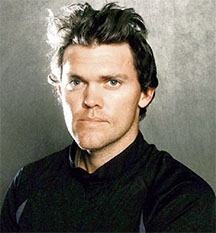WELLINGTON, (Reuters) – The England and Wales Cricket Board (ECB) announced a life ban on disgraced former New Zealand cricketer Lou Vincent yesterday, just hours after the player admitted he was a “cheat” and had shamed his country and the sport by fixing matches.

The ECB said 35-year-old Vincent had pleaded guilty to 18 breaches of the board’s anti-corruption regulations in three matches in England and had accepted the ban which barred him from playing or coaching in any form of recognised cricket.
“This has been a complex case which has crossed different cricketing jurisdictions and required close collaboration and intelligence-sharing between both our own anti-corruption unit, other domestic boards and the ICC’s ACSU (anti-corruption and security unit,” ECB chief executive David Collier said in a statement. “We are extremely pleased that the matter has now been brought to a satisfactory conclusion and that an individual who repeatedly sought to involve others in corrupt activity for his own personal gain has accepted that his conduct warrants a lifetime ban from cricket. “It once again highlights our resolve to keep cricket clean and rid the game of the tiny minority who seek to undermine the sport’s integrity,” he added. Vincent, representing Auckland Aces, also tried to “corrupt” two matches in the 2012 edition of the Champions League Twenty20 tournament, its organisers said yesterday.
The top-order batsman has already been banned by the Bangladesh Cricket Board for three years for failing to report an approach from match fixers when he played for the Khulna Royal Bengals in the 2013 BPL season.
‘I AM A CHEAT’
“My name is Lou Vincent and I am a cheat,” he said in a statement issued to local media earlier yesterday.
“I have abused my position as a professional sportsman on a number of occasions by choosing to accept money through fixing.
“I have lived with this dark secret for many years, but just months ago I reached the point where I decided I had to come forward and tell the truth.” Vincent admitted last December that he had been co-operating with ICC anti-corruption officials investigating alleged match-fixing in at least four countries but had never spoken publicly about his involvement until now.
He was one of three former New Zealand players identified as being involved in the investigation, though neither the ICC, nor New Zealand Cricket (NZC) have named the other two cricketers. Local media identified Chris Cairns as one of the other players implicated in the investigation, an allegation the former all-rounder has denied.Cairns travelled to London in May where he had been interviewed at his own request by London police, English cricketing authorities and the ICC’s anti-corruption unit.
Upon his return to New Zealand he again denied any wrongdoing and described the accusations against him as “absurd, bizarre and scary”.
Vincent, who played 23 tests and more than 100 one-day internationals for New Zealand, had been investigated for being involved in attempting to manipulate 12 matches in five countries between 2008 and 2012.
Vincent pleaded guilty to offences relating to two matches he played for English county Sussex in August 2011 – a Twenty20 contest against Lancashire and a 40-over clash with Kent – besides another Twenty20 match between Lancashire and Durham in 2008, the ECB said.
Vincent is unlikely to appeal the ban after saying he would “accept any punishment” in his confession statement. “I have shamed my country. I have shamed my sport. I have shamed those close to me. For that I am not proud,” Vincent added.
“The time has come for me to now face them like a man and accept the consequences, whatever they may be.” ICC chief executive David Richardson endorsed the ban and was hopeful that it would send out a “loud and clear message” to those corrupt.
“These unscrupulous corruptors and small group of greedy individuals should not be permitted to destroy the game for the overwhelming majority who play the game as they should, and the fans across the world,” Richardson said in a statement.
